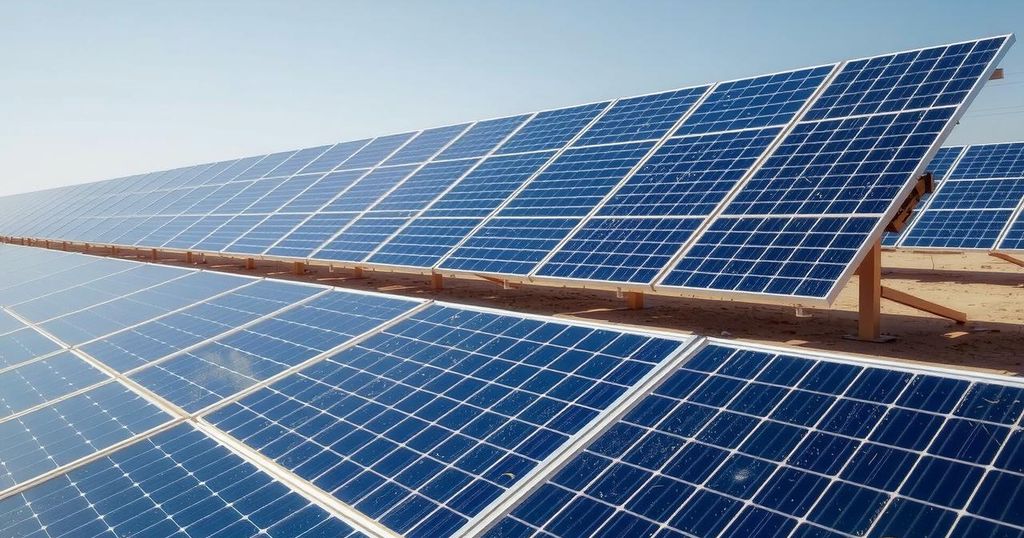Tunisia Advances Renewable Energy Goals with 500 MW Solar Projects

Tunisia has signed contracts for 500 MW of solar projects as part of a larger renewable energy plan. These projects will generate 1 TWh annually, contributing 5% to the nation’s electricity supply. Notable developers include Qair International and Scatec. Additionally, plans for wind energy projects are underway. These initiatives mark significant progress in Tunisia’s energy transition and sustainability goals.
Tunisia has made a significant advancement in its renewable energy initiative by signing contracts for four solar photovoltaic projects totaling 500 MW. These projects represent the initial step of a broader 1.7 GW tender and are anticipated to become operational by 2027. Upon completion, they are projected to produce 1 TWh annually, contributing approximately 5% to Tunisia’s electricity supply.
Among the awarded bids, three installations of 100 MW each will be developed by notable companies including Qair International, Scatec, and Voltalia, situated in the regions of El Ksar (Gafsa), Mezzouna (Sidi Bouzid), and Menzel Habib (Gabes). Moreover, Qair International has secured an additional project with a capacity of 198 MW at Sidi Bouzid, thereby enhancing its stake in Tunisia’s energy landscape.
In parallel to these solar initiatives, Tunisia’s Ministry of Industry, Mines, and Energy has unveiled plans to invite bids for two wind projects, each with a capacity of 75 MW, anticipated to be announced by March 2025. Additionally, two solar projects of 10 MW each are already under development in the Kasserine Governorate, led by Qair and Mazarine. A further substantial project, a 50 MW solar plant in Tozeur valued at TND 135 million, is currently under construction, with Scatec and Toyota subsidiary Aeolus at the forefront of the project.
Tunisia is certainly making commendable strides toward its renewable energy objectives, solidifying its role as a pivotal contributor to the renewable energy transition within the region.
The drive toward renewable energy in Tunisia is part of a broader effort to diversify the country’s energy sources and enhance its energy independence. The signed contracts signify the government’s commitment to sustainable energy solutions, allowing for a transition away from fossil fuels. By targeting a significant increase in renewable capacity, Tunisia aims to not only meet domestic energy demands but also contribute positively to global energy sustainability goals. The projects outlined in this initiative are crucial steps toward achieving Tunisia’s long-term energy strategy and environmental aspirations.
In conclusion, Tunisia’s recent signing of contracts for 500 MW of solar projects marks a pivotal development in its renewable energy efforts. The initiation of these projects aligns with the country’s broader objective of expanding its renewable energy capacity. As developments progress, such projects will not only enhance Tunisia’s electricity supply but also position the nation as a leader in regional energy transition efforts.
Original Source: solarquarter.com





